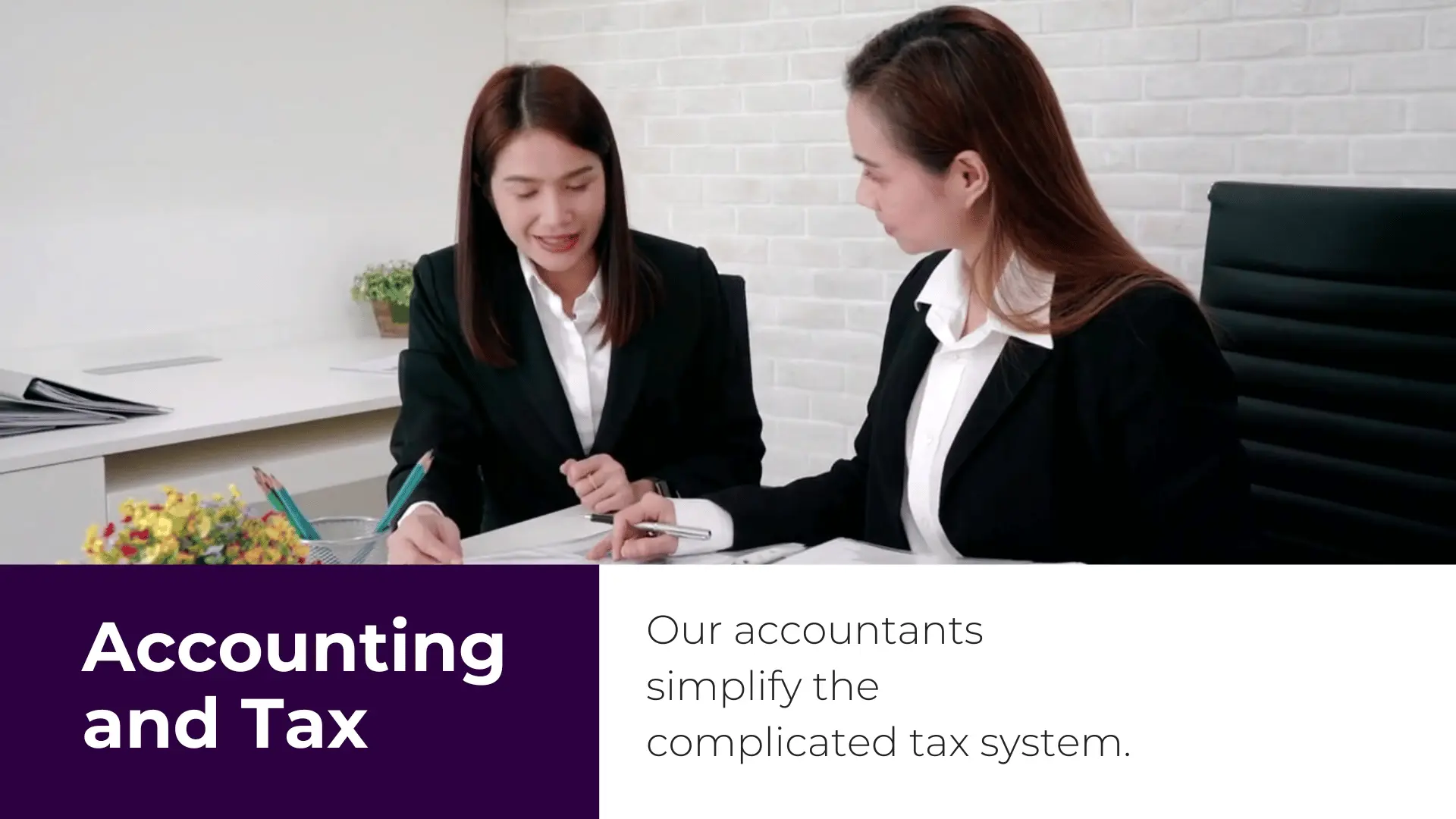
Accounting Services and Tax in Thailand
We dedicate our thorough understanding of
Thailand’s taxation systems to helping our clients achieve their business objectives, always striving to maximize company benefits and reducing tax liabilities. At Attori Law we are here to help; from advisory and consultation to our flexible accounting and bookkeeping plans, we will work with you to fulfil your needs.
Free Consultation
Accounting Services and Tax
Bookkeeping
Monthly account keeping and filing. Tracking invoices, payments, receipts, payroll.
Monthly Tax Submission
Preparing and filing VAT (PP30) PND 90/91 PND 53 PND1 and other related taxes.
Annual Report
Auditing and submission of financial statement to the Ministry of Commerce (SorBorChor. 3)
Vat Registration
Business Value added Tax registration and processing.
Corporate Tax (CIT)
Mid-year corporate income tax (PND. 51) and year-end corporate income tax (PND 50) preparation and filing.
Tax ID
Application Tax ID number for business and personal.
PErsonal Income Tax (PIT)
Preparing and submit annual employee withholding tax (PND. 1 Kor) PND3 PND53
Social Security
Register company and staff to social security office. Monthly payment processing.
Advisory
Providing advice on accounting-tax in Thailand.

Not sure where to start? Contact us for a free consultation
Frequently Asked Questions (FAQs)
What is involved in the end-of-year audit process for businesses in Thailand?
The end-of-year audit process involves reviewing your company’s financial statements, ensuring compliance with Thai accounting standards, and confirming that all tax obligations are met. An audit also helps identify any discrepancies in the financial records and ensures the company’s financial health. Engaging with a qualified accountant ensures accuracy and timely submission of audit reports. Audits are just one part of accounting services.
How do I pay taxes in Thailand?
In Thailand, taxes are paid through the Revenue Department. Businesses must file tax returns, such as VAT, corporate income tax, and personal income tax (for employees), on a regular basis. It’s crucial to file taxes on time to avoid penalties. A qualified accountant can help with the filing process, ensuring all tax obligations are met efficiently.
How do I know which taxes I should pay while in Thailand?
To determine the taxes you need to pay in Thailand, you should first identify your business structure (e.g., sole proprietorship, limited company) and income level. Common taxes include corporate income tax, VAT, and social security contributions. Consulting with an accountant can help ensure compliance with local tax laws and deadlines. Our accounting services also assist in calculating tax liabilities and allowances.
Where can I obtain a tax ID?
You can obtain a personal Tax ID from the Revenue Department. When setting up your company, your company ID will be used as your tax ID. It is advisable to seek assistance from an accountant to ensure the application is done correctly.
What happens if I miss a tax deadline in Thailand?
If you miss a tax deadline in Thailand, you may incur penalties and interest charges. It’s important to pay taxes on time to avoid complications. You should file as soon as possible to reduce penalties. It’s advisable to consult with an accountant to manage missed deadlines and understand how to resolve any issues that arise from delayed payments.
Do I need an accounting services to file my business taxes in Thailand?
While hiring an accountant is not mandatory, it is highly recommended for businesses in Thailand. An accountant helps ensure compliance with local tax laws, manages deadlines, and avoids penalties. They can also provide valuable advice on tax planning, filing, and deductions to optimize your business finances. If you’re unfamiliar with Thai tax requirements, having an accountant handle your business taxes can save time and prevent costly mistakes. Your business will also need to be signed off by a qualified, licensed auditor at the end of each financial year.









